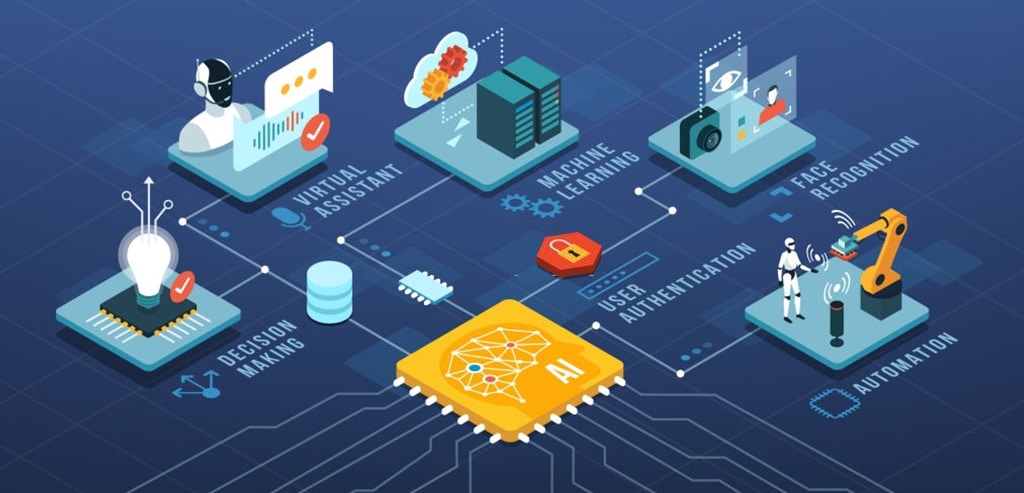There’s so much buzz around the term “artificial intelligence (AI),” yet many people aren’t exactly sure what they are talking about! With countless articles talking about how AI is going to “disrupt” your industry and that you should use it to stay ahead of the competition, we must define what is really being said. So, let’s look at the facts to determine if AI is something your business needs.
AI Is…
“A machine’s ability to understand, think and act on a problem in the same way a human would in the same situation,” as defined in an article by Wandering Alpha. The difference with AI, when compared to humans is the gap of capability. The possibilities seem limitless as AI can manifest in several different forms and produce enormous amounts of processing power. Now, obviously AI is more complex than that, so let’s dive into a couple of business examples:
Chatbot frameworks: Several brands have started using chatbots in order to provide customers with human-like answers. At some time or another, the AI has probably been so impressive that you’ve wondered to yourself whether you are talking to a person or not. This use of technology saves time with fast service employee time and increase customer satisfaction if executed properly.
Amazon’s Online Commerce: I know you’ve probably noticed that when you look at one product, ads with similar products pop up and follow you around as you surf the web. This by itself isn’t AI, but its ability to learn progressively in order to best match items that display a sale and decide whether a customer should be sent a product recommendation is.
AI Isn’t…
“A being with consciousness, always something cold and assembled. It does not “learn” in the way that we learn but it does get better at its work overtime,” as stated by an article on Medium. AI is nowhere near human intelligence examples such as concept-formation. Now that we have clarified this, we must talk about why AI isn’t robotic process automation (RPA).
To put it simply, AI is a thinker, while RPA is a doer. A key feature of AI is its machine learning capability, utilizing decision-making in order to detect patterns and produce insights. RPA, on the other hand, follows strict rules and executes them accordingly. There is no decision making, only following exact orders at a high processing power.
What Does Your Business Need?
In an article by Harvard Business Review, it is stated that “RPA is the least expensive and easiest to implement of the cognitive technologies.” This is because it is the least smart in terms of learning to improve. However, if your business needs to automate repetitive, mundane work tasks in order to save time and cost while freeing employees to focus on more meaningful work, then RPA is the tool for you.
Now, “deep learning, on the other hand, is great at learning from large volumes of labeled data, but it’s almost impossible to understand how it creates the models it does.” As AI provides insights into why certain decisions are made, it is useful where humans are incapable.
Interested in learning more? Schedule a free, 30-minute demo with EPSoft to find out how you can turn these benefits into a reality for your business:

